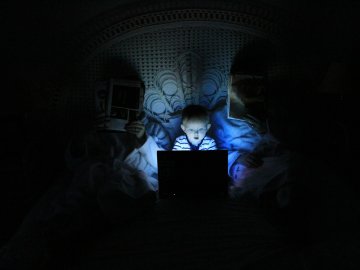Growing up in the 90s and 00s, body image concerns were mainly focussed on print media. Kate Moss was slammed for setting unrealistic body expectations, catwalk models for allegedly living on a diet of champagne and cocaine, while plastic surgery started to become mainstream, with the likes of Jordan and ‘Posh’ Victoria Beckham firmly in the lime light.
I remember walking out of the cinema with my dad after watching Tomb Raider, and he made a big point of explaining that not all women look like that, and not all men want women to look like that. He was picking up, and carrying on, conversations that professionals and parents all over the world were having.
The influence of media on young people’s wellbeing has been a concern since I can remember and I’m sure that it was before. The main difference today, is the sheer volume of content children are confronted with, while the pressures to constantly be connected and interacting online add a whole new dimension.
However it’s not all bad. The internet is a place for everyone, people who would have hidden away now have a platform to share who they are and inspire others. Take Lizzie Velásquez for example, she was born with a rare congenital disease that, among other symptoms, prevents her from accumulating body fat. She might not look like Kylie Jenner but she has inspired people, given hope and helped empower people with physical differences all over the wold to be happy with who they are.
On the internet you can find your tribe, which can be great, but it can also be scary. Parents should be aware of some of the very negative spaces online such as pro-anorexia, self-harm and suicide forums. Our very own Ken Corish wrote an excellent blog on the subject called Waving silently , and Dr Richard Grant from the Tavistock centre has also published this piece of research.
Users in these spaces can be fiercely supportive of each other, often swapping hints and tips to get what they desire; these can be dangerous places for young people. With young girls in particular being force-fed (often doctored) images of women looking “perfect”, and with thousands of likes and followers reinforcing this ideal, I can’t help but think the growing influence of social media is linked to the increase in traffic to these sites. This picture of Kim Kardashian, with Blac Chyna, was famously photo-shopped by herself, as you can tell by the curve in the flooring tiles.
There is no magic fix to this issue, but as a parent or carer you can help lessen the impact of the internet on your child’s wellbeing and self-esteem.
Firstly, talking about it is a good place to start. Ask your child what they think a perfect body looks like and challenge them where necessary. Reassure children, like my dad did with me, that what they’re seeing might not only be fake, but is also not necessarily everyone’s idea of perfect.
Secondly, take an interest in what they’re doing and who they follow - it’s no good putting in all the work through conversations and then allowing them to spend hours unsupervised on Instagram every night.
Thirdly, try limiting their screen time. Being online is fun, but it’s not everything; encourage them to take part in offline activities like sport and craft, reinforcing the true message that there is more to life than what you look like.






